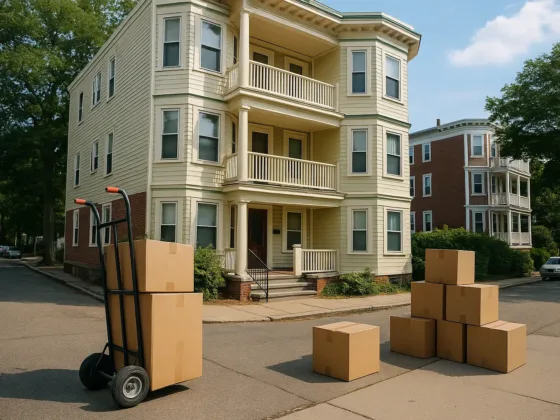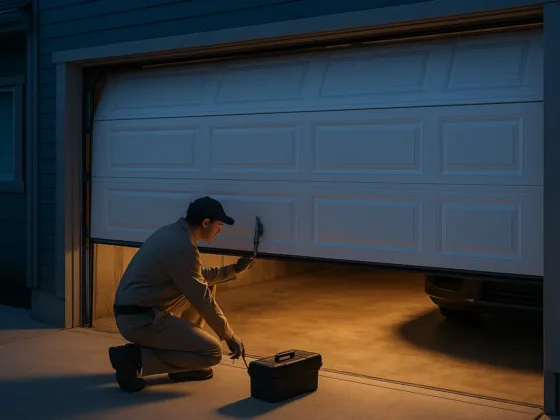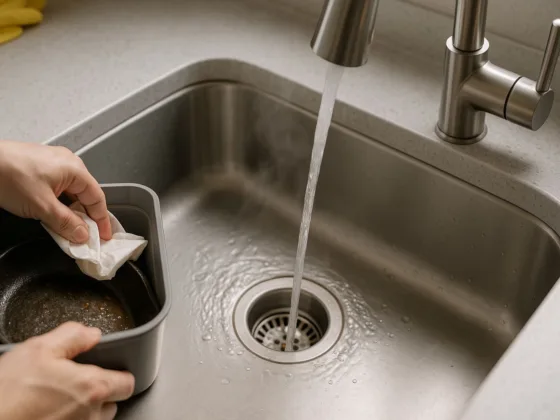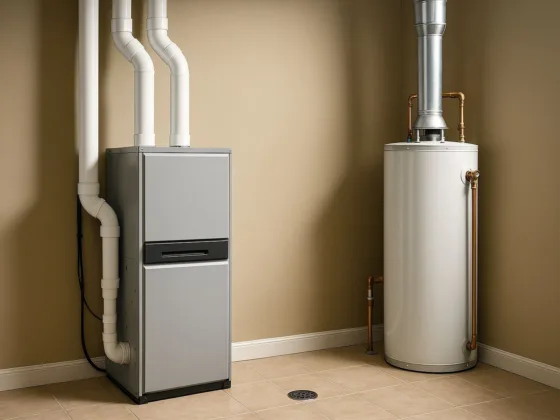Table of Contents Show
Quick answer: To find reliable movers in Raleigh, NC, first decide if your move is local or long-distance, then shortlist three to five companies with strong reviews and real local addresses.
Verify that any mover handling an in-state North Carolina move holds a North Carolina Utilities Commission (NCUC) household goods certificate (“C” number) and proper insurance.
For interstate moves, check their U.S. DOT number and complaint history using Federal Motor Carrier Safety Administration (FMCSA) tools. Compare written estimates (never just verbal quotes), ask exactly what’s included, and watch for red flags like huge deposits or vague promises.
Quick answer checklist:
- Decide whether your move is local within North Carolina or interstate.
- Shortlist 3–5 Raleigh movers with real local addresses and strong recent reviews.
- For NC moves, verify their NCUC household goods C-number and insurance on official state tools.
- For interstate moves, verify their USDOT registration and complaint history using FMCSA tools.
- Get at least three written estimates and avoid movers who demand large up-front cash deposits.
Once you’ve done that homework, choosing a trusted local team becomes much less stressful. Your move day feels more predictable instead of chaotic.
This guide was reviewed by Ryan Carrigan, founder of moving-information platform moveBuddha, which researches movers, pricing, and consumer protection.
Why “Reliable Movers in Raleigh” Is a Very Specific Search
Raleigh isn’t just any city to move around in. It’s a fast-growing metro with real-world challenges that affect how smoothly your move goes.
- Busy commuter routes like I-40, I-440, and NC-540
- Historic in-town neighborhoods with narrow streets and tight turns
- Newer multi-story apartments that require elevator bookings, loading dock reservations, and Certificates of Insurance (COIs)
- Heavy student and faculty turnover near NC State and area campuses
Most of the top pages you see in search results focus on simple “top 10 movers” lists or sales pages for one company. They rarely show you how to check licenses, how North Carolina rules really work, or how to protect yourself from scams.
This guide fills that gap with Raleigh-specific checks and questions, so you can make decisions with confidence.
When you interview movers, ask specifically how they handle these Raleigh realities—rush-hour routes, elevator reservations, student move spikes, and HOA rules—and listen for real local familiarity instead of vague answers.
Step-by-Step Checklist: How to Choose Reliable Movers in Raleigh
Use this checklist as a simple playbook before you sign anything with a moving company.
1. Get clear on your move type
Start by defining exactly what kind of move you’re planning. That’s the foundation for choosing the right company.
- Are you moving within Raleigh or elsewhere in North Carolina (intrastate)?
- Or are you moving from North Carolina to another state (interstate)?
- Do you have special items like a piano, safe, antiques, artwork, or server racks?
- Do you need packing, unpacking, or short-term storage in addition to basic loading/unloading?
Different rules apply to in-state vs. interstate movers, and not every company is set up for every kind of move. Sorting this out early saves a lot of back-and-forth later.
Tip: For a deeper planning overview, check out these DreamlandsDesign guides:
2. Shortlist 3–5 Raleigh moving companies (not just one)
Instead of grabbing the first “top movers” list and calling it a day, build a shortlist of three to five companies you’d honestly consider hiring.
Pull names from a mix of sources so you get a more balanced picture of the Raleigh market.
- Word-of-mouth from friends, neighbors, and coworkers who moved recently in the Triangle
- Local online reviews (Google, Yelp, Angi, HomeGuide, etc.) filtered for Raleigh and nearby towns like Cary or Apex
- One or two moving companies you may have used in other cities, if they now serve the Raleigh area
The goal is to compare good vs. good — not “first search result vs. a random name you know nothing about.” That’s how you find the best fit rather than just the loudest advertiser.
3. Verify licensing and insurance (this is non-negotiable)
For moves within North Carolina, household goods movers must have a certificate issued by the North Carolina Utilities Commission (NCUC). This is often called a household goods “C” number.
- It means the mover is legally allowed to operate intrastate in North Carolina.
- They must maintain required insurance.
- They must follow the state’s Maximum Rate Tariff (MRT) rules on pricing.
For interstate moves, movers must have an active U.S. DOT number and be registered with the FMCSA. They also have to provide specific documents, like written estimates and the “Your Rights & Responsibilities When You Move” booklet.
Simple action steps:
- Ask every mover for their NCUC C-number (for in-state moves) and U.S. DOT number (for interstate moves).
- Look those numbers up on official state and federal websites to confirm they’re active and legitimate.
- Avoid any company that hesitates to share these numbers or doesn’t appear in the official databases.
Must-do legal checks: Before you book, confirm your mover’s NCUC C-number for North Carolina moves or USDOT registration for interstate jobs. If you can’t find them in official databases, treat that as a major red flag.
This one step alone filters out a large number of risky operators that rely solely on ads and quick phone quotes.
Know your basic rights (quick snapshot):
- Within North Carolina: Licensed movers must follow NCUC Maximum Rate Tariff rules, provide written estimates, and itemize your charges.
- Interstate moves: Movers must give you the federal “Your Rights & Responsibilities When You Move” booklet, a written estimate, and clear information about valuation coverage and dispute steps.
4. Learn to spot moving scams before they spot you
Unfortunately, moving scams are on the rise nationwide, and the Raleigh area is not immune. The patterns tend to look very similar, no matter where they show up.
- Companies with no real street address, just a mailbox or vague description
- Names that keep changing between website, truck, and paperwork
- Requests for large cash deposits well before move day
- Only giving rough phone quotes — no in-home or video survey, even for larger homes
- Refusal to provide basic written documents or acknowledgment of your rights
Red flag summary: No physical address, a big up-front cash deposit, and refusal to share a C-number or USDOT number are all strong reasons to walk away from a mover.
Trustworthy movers in Raleigh have consistent branding, legitimate contact info, and clear contracts. They explain how they charge, what could change the price, and what you can do if something goes wrong.
5. What if I have a serious problem with a mover?
Even with good research, problems can still happen. If you run into serious issues with a mover, treat it like a paper trail project.
- Document damage or missing items immediately with photos, notes, and copies of your inventory.
- Follow the mover’s written claims process and keep everything in writing (email is fine).
- For intrastate North Carolina moves, you can also contact the NC Department of Justice or the NCUC complaint resources.
- For interstate moves, you can file a complaint with FMCSA’s National Consumer Complaint Database.
6. Ask smart questions that good movers are happy to answer
Moving experts consistently recommend asking detailed questions. Professional movers see this as a sign that you’re organized and serious, not as a nuisance.
Here are ten questions to ask Raleigh movers before you book:
- Are you licensed for household goods moves in North Carolina, and what is your NCUC C-number?
- For interstate moves, what is your U.S. DOT number and where can I verify it?
- Are your crews employees, or do you use subcontractors or temporary labor?
- What insurance coverage do you carry, and what valuation options can I choose from?
- Can you describe a recent move in Raleigh that’s similar to mine (home size, neighborhood, timeline)?
- How do you handle tight access, elevators, parking, and loading dock reservations, especially in busy areas like downtown, North Hills, or near NC State?
- What is your process if something is lost or damaged, and how long does a claim usually take?
- Exactly what is included—and not included—in your hourly or flat rate?
- Do you offer packing, unpacking, and storage, and how are those billed?
- How far in advance should I book for a weekend or end-of-month move?
The most reputable movers answer these questions calmly, clearly, and in writing if you ask. Evasive or defensive answers are a good reason to keep shopping.
7. Understand how Raleigh movers price jobs
In Raleigh, you’ll usually see two main pricing models. Knowing which one applies to you makes quotes much easier to compare.
- Local / intrastate moves (within NC): Often billed hourly (crew size × hours + travel time), within the limits of North Carolina’s Maximum Rate Tariff (MRT).
- Interstate / long-distance moves: Typically priced based on weight, distance, and add-on services like packing, crating, or handling specialty items.
Key factors that can change your final price include:
- Size of your home (studio vs. four-bedroom house)
- Stairs, elevators, or long carries from truck to door
- How much packing help you need versus what you pack yourself
- Exact origin and destination (including access, parking, and timing windows)
- Season and timing (summer, weekends, and month-end are often busier and pricier)
For a deeper dive into actual numbers and examples, take a look at How Much Does Moving Cost?, which breaks down typical ranges and what drives them.
8. Local Raleigh realities: What good movers quietly handle for you
Raleigh movers who consistently earn strong reviews tend to be excellent at navigating local realities that outsiders often underestimate.
- Traffic and timing: Avoiding rush-hour snarls on key routes like I-40 and I-440, and knowing when major events may clog downtown or PNC Arena.
- Neighborhood quirks: Historic streets, tight corners, and HOA rules that affect parking or truck size in areas like Five Points or inside the Beltline.
- Apartments & condos: Reserving elevators, coordinating loading docks, and providing building-required COIs for newer complexes around North Hills or Brier Creek.
- Weather: Protecting floors and furniture from heat, humidity, and sudden storms during North Carolina’s long warm season.
- College-town moves: Handling heavy demand and quick turnarounds around NC State and nearby student housing.
When your movers quietly manage all of this, your experience feels calm and organized instead of rushed and improvisational.
9. How a trustworthy Raleigh moving company runs your move day
Here’s what a smooth move day typically looks like with a solid, professional moving company in Raleigh.
- Day-before confirmation: You receive a message confirming arrival window, crew size, and truck details.
- On-time arrival: A clearly branded truck pulls up, the foreman introduces the crew, and they walk through your home to spot fragile or high-priority items.
- Paperwork & protection: You review and sign the estimate/order; they protect floors, doors, and railings before they move the first box.
- Systematic loading: Boxes are labeled, furniture is padded and wrapped, and the truck is loaded methodically instead of randomly.
- Drive and unload: The crew confirms directions, parking, and elevator reservations at the new place, then unloads room by room to match your labels.
- Final walkthrough: You check that nothing is left on the truck, review any obvious damage, and sign off with actual time worked and services provided.
This kind of structure is what makes a professional move feel almost effortless. Everything works because there’s a detailed plan behind it.
What a Vetted Raleigh Moving Company Looks Like (Example)
If you’d like a concrete example of the type of company to compare others against, you can look at Movers in Raleigh.
They are part of a regional moving network and illustrate several qualities you should look for in any mover:
- A clear, professional online presence with real contact details
- Proper licensing and insurance for the areas they serve
- Transparent descriptions of local, long-distance, packing, and storage services
- Messaging focused on reliability, communication, and predictable pricing
Even if you ultimately choose a different Raleigh mover, using a company like this as a benchmark makes it easier to spot quotes that are unusually low, vague, or simply risky.
Disclosure: This example is provided for illustration and comparison only. It does not constitute a formal endorsement or guarantee. We have no control over third-party pricing or service quality, and this example is not sponsored content. Always perform your own due diligence before hiring any moving company.
DreamlandsDesign Moving Resources to Go Deeper
To keep your research within one focused moving and relocation silo, here are a few related guides on DreamlandsDesign:
- Why Hire a Moving Company? 17 Benefits of Professional Movers
- How Much Does Moving Cost?
- Painless Packing Pointers: Simplifying Your Big Move
- Your Cross-country Moving Checklist
These guides cover the most common moving questions—costs, packing, and long-distance planning—so you don’t have to bounce between dozens of tabs.
FAQs: Finding Reliable Movers in Raleigh, NC
For most apartment or house moves, aim to book movers about four to six weeks in advance. That timing is especially important if you’re moving in summer, at the end of the month, or on a weekend, when demand in Raleigh tends to spike.
Yes. If you pay someone to move your household goods within North Carolina, they should be licensed by the North Carolina Utilities Commission and have an active household goods certificate, often called a C-number. For interstate moves, they must also have a U.S. DOT number and follow FMCSA regulations.
Ask the mover directly for their U.S. DOT number, then enter it into FMCSA’s online search tools, such as Mover Search or the SAFER system. On the FMCSA result page, confirm that the operating status is “Active” (not “Out of Service”), that they are authorized to transport household goods, and that there are no serious enforcement actions that concern you.
A mover owns trucks, employs crews, and is physically present on move day. A moving broker sells your move to someone else and may not own trucks or directly employ the workers who show up. Many problem cases involve brokers posing as local movers, taking large deposits, and then handing jobs to unknown carriers. When you’re unsure, ask directly whether the company’s own employees in its own trucks will handle your move, or whether the job will be brokered out.
Under federal and state rules, movers must provide at least a basic level of valuation coverage, but that may only reimburse you at a low per-pound rate if something is damaged. For higher-value homes or long-distance moves, it’s often worth considering full-value protection through the mover or a separate moving insurance policy from a third-party provider. Ask the mover to explain, in writing, what happens if something breaks and how to file a claim. Clear, written answers here matter more than any marketing slogan.
Yes. Many larger apartment communities and HOAs around areas like North Hills, Brier Creek, and downtown Raleigh require elevator reservations, loading dock bookings, and Certificates of Insurance from your mover. Ask whether your mover has handled your building or neighborhood before and how they manage these details.
Final Thoughts
Moving into or out of Raleigh is a major milestone. When you take the time to verify licenses, compare several written estimates, ask smart questions, and watch for red flags, you give yourself exactly what the best moving companies promise: a move that feels calm, predictable, and respectful of your time and belongings.
Use this guide as your checklist. Cross-check what movers tell you against official resources, and then choose the company that earns your trust both on paper and in conversation.
Perla Irish – Home & Moving Content Editor
Perla Irish focuses on moving, remodeling, and homeowner how-to content. She has developed moving checklists based on guidance from NCUC, FMCSA, and state consumer protection offices, helping homeowners avoid scams and choose reputable movers. She specializes in turning dense regulations and industry jargon into clear, practical steps that everyday homeowners can actually use during stressful transitions like moving day.
Reviewed by
Ryan Carrigan – Moving Industry Analyst & Founder, moveBuddha
Ryan has spent over a decade in the moving industry as both a relocation consultant and the founder of moveBuddha, a respected moving-information platform. He has helped thousands of people understand how to choose reputable moving companies, avoid scams, and budget realistically for local and long-distance moves.
Sources & References
Sources & References
This guide is for general consumer education. Moving regulations and tariffs change over time, so always confirm details using these official resources before you hire a mover.
- NC Utilities Commission – “Moving 101” Consumer Guide
- NC Utilities Commission – Transportation / Household Goods Movers
- North Carolina Department of Justice – Moving Consumer Advice
- FMCSA – Protect Your Move (U.S. DOT)
- FMCSA – Search for a Registered Mover (USDOT Lookup)
Content reviewed against NCUC, NC DOJ, and FMCSA guidance in 2025. Regulations and contact details can change—always check the latest information on the official sites.








